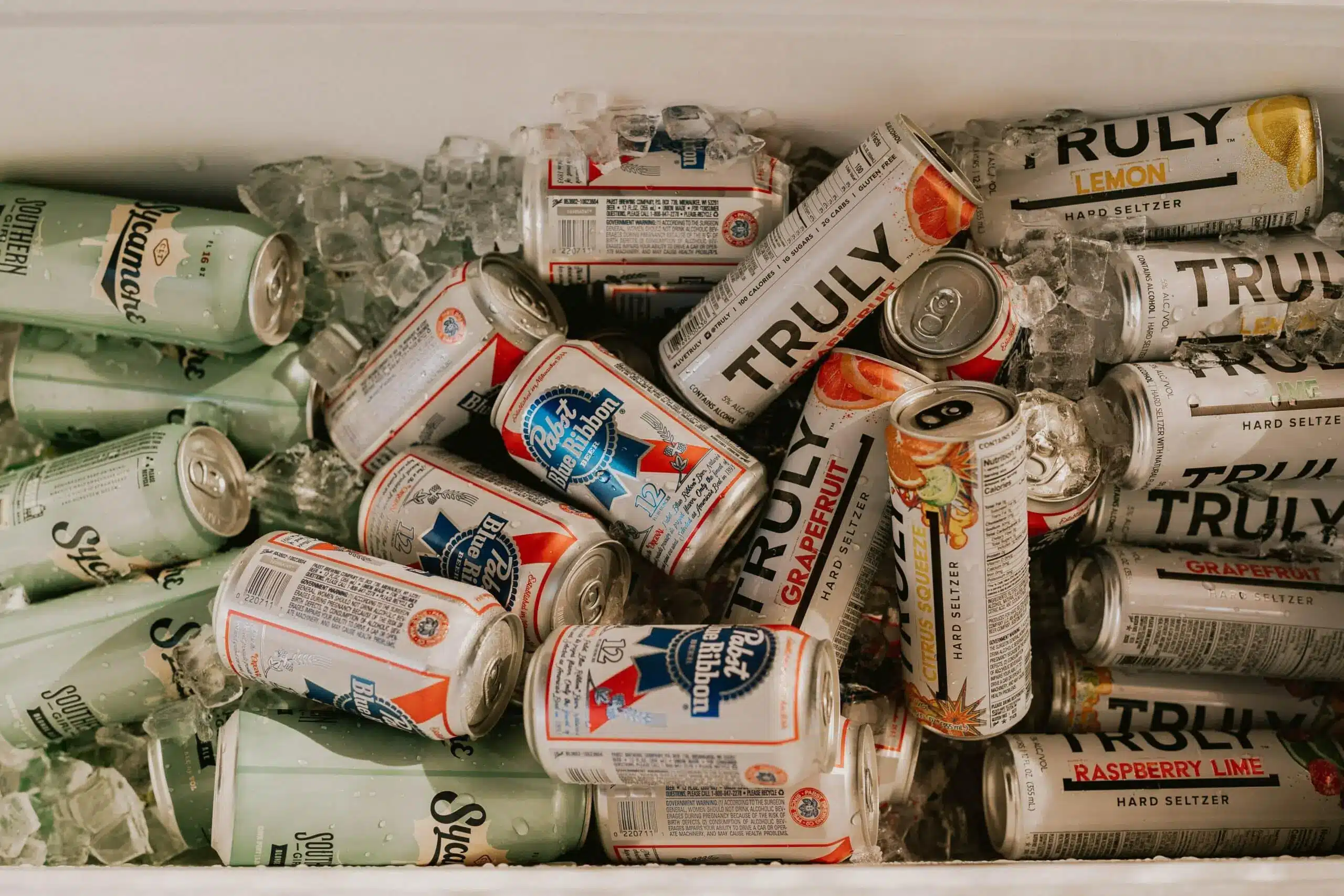The phenomenal rise of hard seltzers in the UK drinks market
In recent years, the UK drinks market has witnessed a revolutionary trend that has captivated consumers and shaken up the industry – the rise of hard seltzers. Once obscure, these fizzy alcoholic beverages have rapidly transformed into a cultural phenomenon, enticing a broad range of consumers with their low-calorie content and refreshing flavours.

What are Hard Seltzers?
If you didn’t know already, hard seltzers are alcoholic beverages made from sparkling water, alcohol, and natural flavourings. Originating in the United States, they swiftly crossed the Atlantic and took the UK drinks market by storm. The appeal of hard seltzers lies in their lower calorie content compared to traditional alcoholic drinks like beer and cider. They also cater to health-conscious consumers by being gluten-free and containing fewer carbohydrates. As a result, they quickly garnered a reputation as the healthier alternative to traditional alcoholic beverages.
The Rise of the Seltzers
The rise of hard seltzers in the UK has been nothing short of spectacular. According to market research firm IWSR, in 2020, the hard seltzer category grew by a staggering 160% in volume. This meteoric growth is a testament to their immense popularity among consumers seeking new and exciting drinking options.
The rapid adoption of hard seltzers can be attributed to shifting consumer preferences. As younger generations come of legal drinking age, they bring with them an inclination towards healthier and more socially responsible choices. Millennial and Gen Z demographics are increasingly favouring light, convenient, and Instagram-worthy drinks. Hard seltzers fit perfectly into this lifestyle trend.
The digital landscape plays a vital role in shaping consumer behaviour. With a strong presence on social media platforms and strategic influencer partnerships, hard seltzer brands can effectively reach and engage their target audience.
Several major players have emerged in the UK’s hard seltzer market, each vying for a significant share of the pie. Leaders include brands like White Claw, Truly, and Bodega Bay. They have made a name for themselves by offering diverse and appealing flavours, creating fierce competition for market dominance. Supermarkets and retail chains have also jumped on the bandwagon, introducing their ‘own brand’ hard seltzers to meet the soaring demand.
Despite their tremendous growth, hard seltzers face some challenges in the UK market. The alcoholic beverage industry is fiercely competitive. Established products like beer, cider, and traditional mixed drinks are maintaining their market share. Additionally, Brexit and supply chain disruptions may impact the availability of ingredients, leading to potential price fluctuations.
What Does The Future Hold?
However, the future of hard seltzers in the UK remains bright. As the trend continues to evolve, companies have opportunities to innovate further by experimenting with new flavours, sustainable packaging, and tapping into niche markets. By addressing environmental concerns and capitalising on the health consciousness of consumers, hard seltzer brands can solidify their position in the UK drinks market.
As hard seltzers continue to gain momentum, PR can play a crucial role in leveraging the growing trend to maximise brand exposure and consumer engagement. Adopting innovative PR strategies and crafting purpose-driven campaigns, leveraging digital platforms, promoting sustainability efforts, and forging collaborative partnerships to tap into current consumer sentiments hard seltzer brands will create a lasting impact on the target audience.
Subscribe to the newsletter
Subscribe to receive notifications on the latest Case Studies, Insight and Blog releases.



